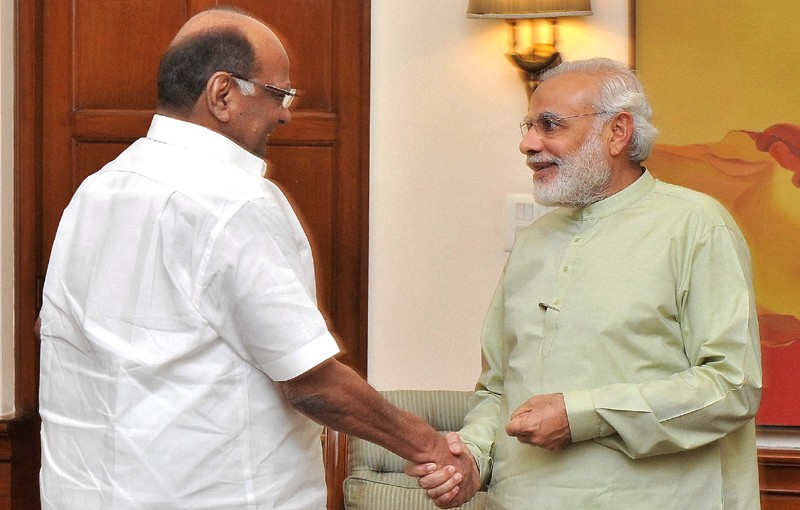The Maratha Who Manages To Be At The Centre of Every Political Crisis in Maharashtra

NEW DELHI: It has happened almost as anticipated. The Shiv Sena has broken its alliance with the Bharatiya Janata party in Maharashtra and now both the parties are pulling all possible plugs for the forthcoming local elections in the state. To the point that the budget session of Parliament will see a thin attendance from Maharashtra with both parties now determined to outdo the other for what is fast becoming a battle for power.
In the midst of this is Maratha strongman, Sharad Pawar. Widely credited with breaking the Hindutva alliance within six months of losing the Lok Sabha elections, Pawar is now again being mentioned by the BJP as a possible ally replacing the Shiv Sena. In 2014 Pawar broke the Shiv Sena-BJP alliance based on ideology at the time with the two parties contesting the Assembly polls separately. In fact, a senior Union Minister from the state told this reporter after the general elections,” Pawar is trying to create a split but how can he succeed, we are together, we have won the elections and are both in power.” But Pawar had the last laugh as within six months the alliance had come to an end.
Pawar, although he remains in alliance with the Congress, has good relations with both Prime Minister Narendra Modi and BJP President Amit Shah. Except for the RSS chief Mohan Bhagwat, Pawar is said to have a line to all BJP leaders. Quite unlike the Shiv Sena whose leader Udhav Thackeray does not get along with Shah at all according to sources.
Pawar, despite poor performance in the elections, with his party Nationalist Congress party coming fourth has managed to retain his own individual stature in Maharashtra. Last year he was again seen as the strategist behind the Maratha stir for reservation, that spread through the Marathwada region. This strengthened his position in the state considerably, although because of the absence of any other vote, his party remains at the bottom end of the electoral scale. Pawar, though, is seen as a major player with a finger if not a whole hand in every possible political crisis.
After the demise of Bal Thackeray, Pawar is now the lone strongman in the state and even though the people might not vote for him, there is no politician in Maharshtra who can dare ignore him. He keeps the Congress on tenterhooks before all elections, and revs up the flirtations with the BJP and at times with Shiv Sena just sufficiently to get the number of seats he wants for the NCP. This time his daughter Supriya Sule has said that the Congress and NCP should have alliance in the forthcoming local body elections, although Pawar has created som jitters by appearing to be open to approaches from the BJP or for that matter Shiv Sena.
Pawar, now closer to the central leaders of the BJP, had a great rapport with former SS chief Bal Thackeray. He is said to have played a major role in securing the Shiv Sena support for Congress presidential candidates Pratibha Patel, and later Pranab Mukherjee.
Pawar has had a long innings with Congress President Sonia Gandhi, and her family but it is a well known secret that neither trusts the other. Pawar had founded the NCP on the issue of Sonia Gandhi’s foreign origin in 1999. Under Atal Bihari Vajpayee’s government he was allotted a front row seat in the Lok Sabha through the BJP quota. He fought the last Lok Sabha polls as part of the UPA, with which he has been since 2004 after Sonia Gandhi visited him personally and requested him to join the Congress led alliance.
Pawar secured four Lok Sabha seats, and the Congress just two from Maharashtra. He is no longer with the UPA, as he decided to contest the Assembly elections later in 2014 on his own. He has not returned to the UPA since, preferring to hedge his political bets.
Pawar in the state is seen as a protegee of erstwhile leader YB Chavan but learnt his national political from former Prime Minister Chandrashekhar who made him the first non-Congress Chief Minister of Maharashtra in 1978. Now despite his age, 75, and indifferent health Pawar has not reliquished his grip on political craftsmanship, remaining relevant even as his party becomes increasingly irrelevant in the state.



